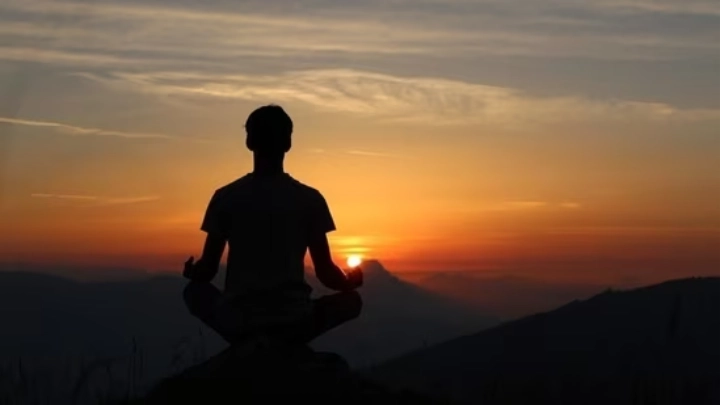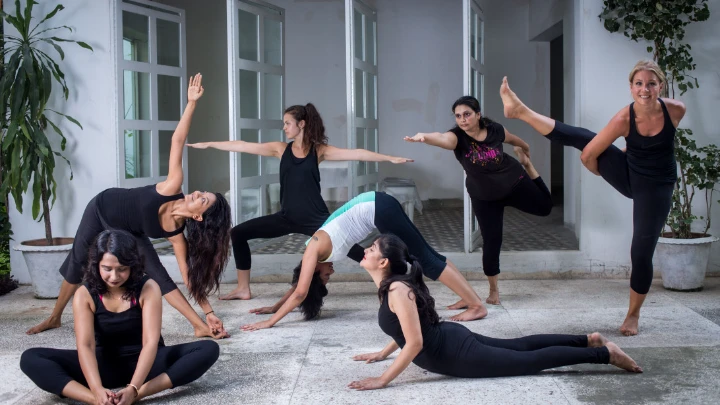Meditation for all: A beginner’s guide to mindful living
DailyStar || Shining BD
If you are a beginner who is wondering whether meditation is for you, the good news is that meditation is for everyone, regardless of their age, socioeconomic background or vocation in life. Meditating regularly makes one more receptive and open, thus enhancing the way one experiences life.
Meditation has rapidly gained traction in recent years, with many deciding to undertake the transformational journey; yet others fail to understand what meditation truly is. And while some may be eager to start their own journeys on to self-healing and self-discovery, they may be unaware of the correct way in which to do so.
Sameera Afreen, meditations facilitator and communications specialist at Satori Meditations, explains, "Meditation, essentially, is a state of being where we are completely aware, present and non-judgmental. It is knowing how you feel in a certain moment without identification of the mind. In other words, it is being in a state of no mind."
If you are a beginner who is wondering whether meditation is for you, the good news is that meditation is for everyone, regardless of their age, socioeconomic background or vocation in life. Meditating regularly makes one more receptive and open, thus enhancing the way one experiences life. Additionally, it makes us conscious of our own biases, allowing us to be aware of our partialities when making decisions in our day-to-day lives.
"Every individual is different — we are each raised in different ways, growing up in different environments and this affects our psyche, our conditioning. The social conditioning we receive in our younger years makes us feel certain ways about certain things. For instance, it may affect our perceptions of beauty or peace, or even the idea of the perfect partner. That is why every person's meditation journey is unique to that individual — someone going through a great deal of emotional suffering will have a very different path than someone who is just looking to elevate their life experience," clarifies Sameera.
Meditation centres offer a variety of events and workshops encompassing a range of meditation techniques. Broadly speaking, techniques can be divided into two categories: active and passive techniques. Active techniques, which include breathwork, humming meditation, catharsis and Sufi techniques such as whirling, are the most commonly effective techniques for modern meditators as they require movements or proactive participation, taking the mind off other matters. Passive techniques, such as guided meditations and zazen meditation, where one sits in silence and does nothing, may not be as effective for the beginner.
"Initially, we prescribe a technique which involves bodily movements. For instance, if someone comes in with a problem such as overthinking, Zazen meditation will not be as effective since sitting in silence will mean that the mind only thinks more. Then again, we often find that in order to overcome stress, anxiety, anger issues or depression, there is the need to release pent-up emotions."
Breathwork technique to overcome overthinking
Method: 4 Step Breathing (Breathwork)
Duration: 10 minutes
Time: Suitable for anytime of the day, in the morning, before bed or before any task that requires your presence and focus. It may also be done sitting in traffic to calm the mind.
Steps:
- Sit with your spine straight, cross legged or on a chair and close your eyes. Start with deep inhalation through the nose, and feel your lungs fill with air. Hold this air in as long as possible.
- When you cannot hold any longer, start to exhale very slowly, through the mouth.
- When you have exhaled all the air, hold your breath again.
- When you cannot hold your breath any longer, deeply inhale through the nose, and feel your lungs filled with air.
- Repeat this same breathing sequence for 10 minutes, preferably with the help of a timer.
- Observe everything that happens around you and within you as you practice the breathwork. Just observe without trying to judge and keep your attention on the breathwork.
Above all, one should not approach meditation like any other task in life, with goals and deadlines. It is necessary to be playful, since taking anything seriously builds up stress. A part of meditating involves observing things just the way they are — be it thoughts, actions, projections, emotions, pain or heartbreak. It is accepting each moment regardless of whatever happens.
Shining BD
























